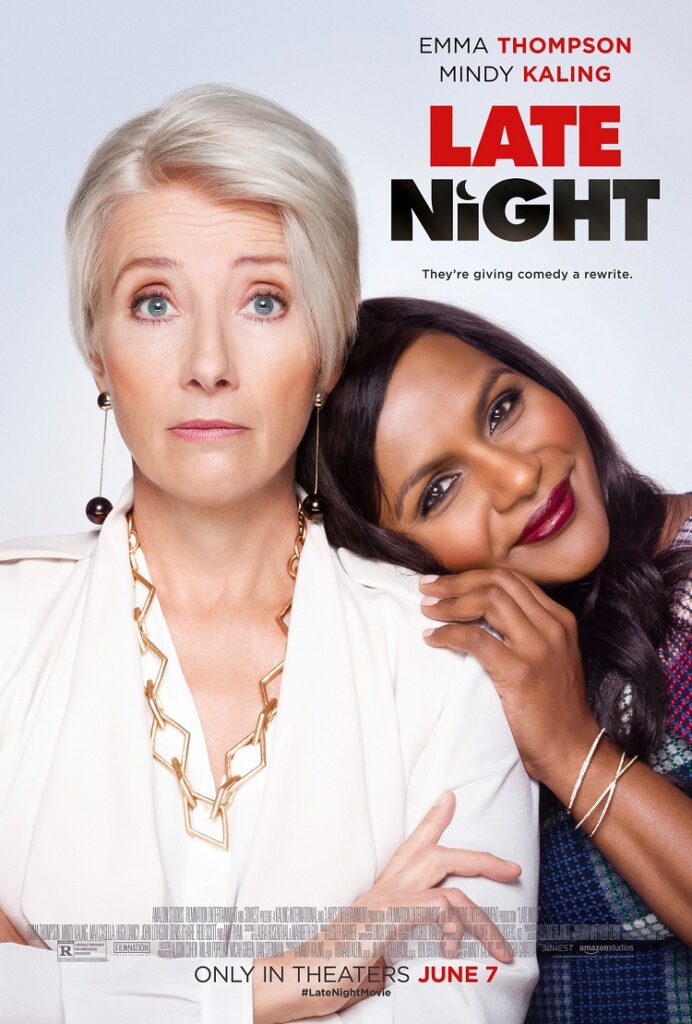
While Late Night is full of high points, one of its best ones is how it points out the fallacies of any recent film that has underused Emma Thompson’s talents. Thompson is one of the best actresses working today and it is so relieving to see her once again play such a well-rounded lead character. The film may be a talk-show version of The Devil Wears Prada with Thompson in the Miranda Priestly role but she is still a sharp delight, relishing in her character’s complicated glory.
Thompson plays Katherine Newbury, a British late-night talk-show host whose show has been on a drastic decline. She refuses to modernize her material and her writing staff consists of only white men. Hoping to revitalize her show and shed her reputation as a woman who hates women, Katherine decides to whimsically hire a female writer. Joining the writing team is Molly Patel (Mindy Kaling), a factory worker with no comedy experience.
Fortunately for Katherine, Molly proves to be a vital asset while acting as a worthy counterpart as well. Molly may be slightly aware that she was picked as the show’s “diversity hire” yet she still attempts to prove how her male colleagues underestimate her. Her sly, self-aware calculation is perfectly calibrated by Mindy Kaling who also wrote the screenplay and created a strong character that could have easily been portrayed as little more than a receptive cipher.
As great as Kaling is, though, it’s still Emma Thompson who still owns the show. She delivers Kaling’s incredibly cutting dialogue with ease while never failing to exemplify the vulnerable woman behind the shrewd persona that Katherine presents. In addition, her performance is in sync with the film’s seriocomic tone.
The trailers make Late Night seem like it’s a light workplace comedy. It sort of is yet there’s still plenty of dramatic heft behind it. Particularly, when it offers a glimpse at Katherine’s troubled home life while showing the deep connection that Katherine and Molly share. There may be a generational difference between the two women along with a difference in race. However, they still relate to one another because of their passion for the show they’re a part of and their attempt to make it in a white man’s world.
Going back to the screenplay, a part of its sharpness comes from its blatant attempt at tackling gender and racial politics. Even the film’s funniest moment involves Katherine chastising a former male employee for asking for a raise because he and his wife had a baby, comparing him raising a child to having a drug-addict problem. That being said, the script never goes overboard with its political humor since the third act is where Late Night becomes more of an intimate character drama.
The tonal shifts might throw some viewers off along with its slight editing problems. But Late Night is still an entertaining satire about casual sexism in the television-writer’s world that never fails to maintain its acerbic wit. Plus, it’s got Emma Thompson’s most three-dimensional performance in quite some time. That alone is still a huge selling point.